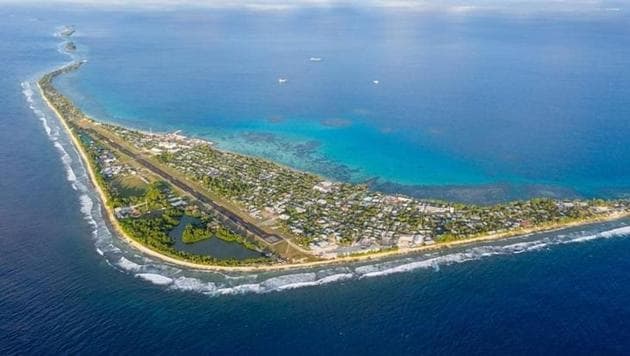The Known Fact About Tuvalu Country
Tuvalu is a small island country in the South Pacific Ocean, and it frequently appears in the news because of its vulnerability to climate change. Tuvalu’s compelling culture, distinctive economy, and looming environmental threat are as fascinating as they are alarming. In this article, we explore all the facts about Tuvalu and why there is a real threat it might disappear from the world map.
Where is Tuvalu located?
Tuvalu is a group of nine low-lying islands and atolls located in the Pacific Ocean, halfway between Australia and Hawaii. Due to its remote location in Oceania, it ranks among the smallest and least visited countries in the world.

Population and Size
Population: approximately 11,000 (2025 estimate), ranking among the world’s least-populated countries.
Land Area: Approximately 26 sq km, one of the world’s smallest countries by area.
Capital: Funafuti, which is situated on the largest atoll.
Languages: Tuvaluan, English
Political Structure: Tuvalu is a parliamentary democracy and constitutional monarchy.
Economy: The local economy relies on fishing, agriculture, remittance inflows, and fees from leasing its highly coveted internet domain “.tv.”
Unique Features
There are no rivers or streams on the islands, so the inhabitants rely on rainwater for their freshwater needs.
The nation’s highest elevation is at only about 4 feet (1.2 meters). Average elevation is approximately 5 meters above sea level and as low as 2 meters.

Why Is Tuvalu Facing Extinction?
- Rising Sea Levels
Tuvalu’s biggest threat is climate change, particularly rising sea levels. Over the past 30 years, the ocean around Tuvalu has already risen by approximately 15 centimeters, submerging land and increasing flooding. Scientists warn that significant portions of the country, or even its entirety, could be underwater by the end of this century.
Climate Change Impacts
Frequent storms, flooding, and powerful king tides are eating away at Tuvalu’s land. Global warming is contributing to the increased frequency and severity of natural disasters, which endanger people’s homes, infrastructure, and crops.
Loss of Freshwater and Farmland
As sea levels rise, saltwater infiltrates the soil and groundwater. This makes farming staple foods such as taro and coconuts difficult and pollutes the groundwater, threatening food security. - Health Risks and Food Insecurity
Destruction of crops and limited access to fresh water threatens Tuvaluans with malnutrition, dehydration, and waterborne diseases. Health issues related to environmental change, such as mental health problems, are increasing. - Planned Migration and Cultural Loss
Tuvalu also signed the Falepili Union Treaty with Australia to ensure Tuvaluans could safely migrate to Australia in case of an ecological disaster. The specter of leaving the islands means the loss of not only their homes but also their unique culture and identity.
Tuvalu in the Global Spotlight
Tuvalu is the world’s “canary in the coal mine” for climate change. It is the first country contemplating the organized migration of its entire population due to rising seas. The world closely watches Tuvalu’s fight as a warning that other low-lying countries will be at risk if global leaders do not take action to reduce carbon emissions and address climate threats.
Tuvalu is a remarkable nation, but it faces an imminent threat of disappearing due to climate change. Its near-term survival challenges us to take bold action for the environment. Helping Tuvalu to survive means ensuring the future for all nature-dependent communities across the planet.
Let Tuvalu’s fight for existence inspire us to act urgently—for the sake of their people, culture, and our shared planet.